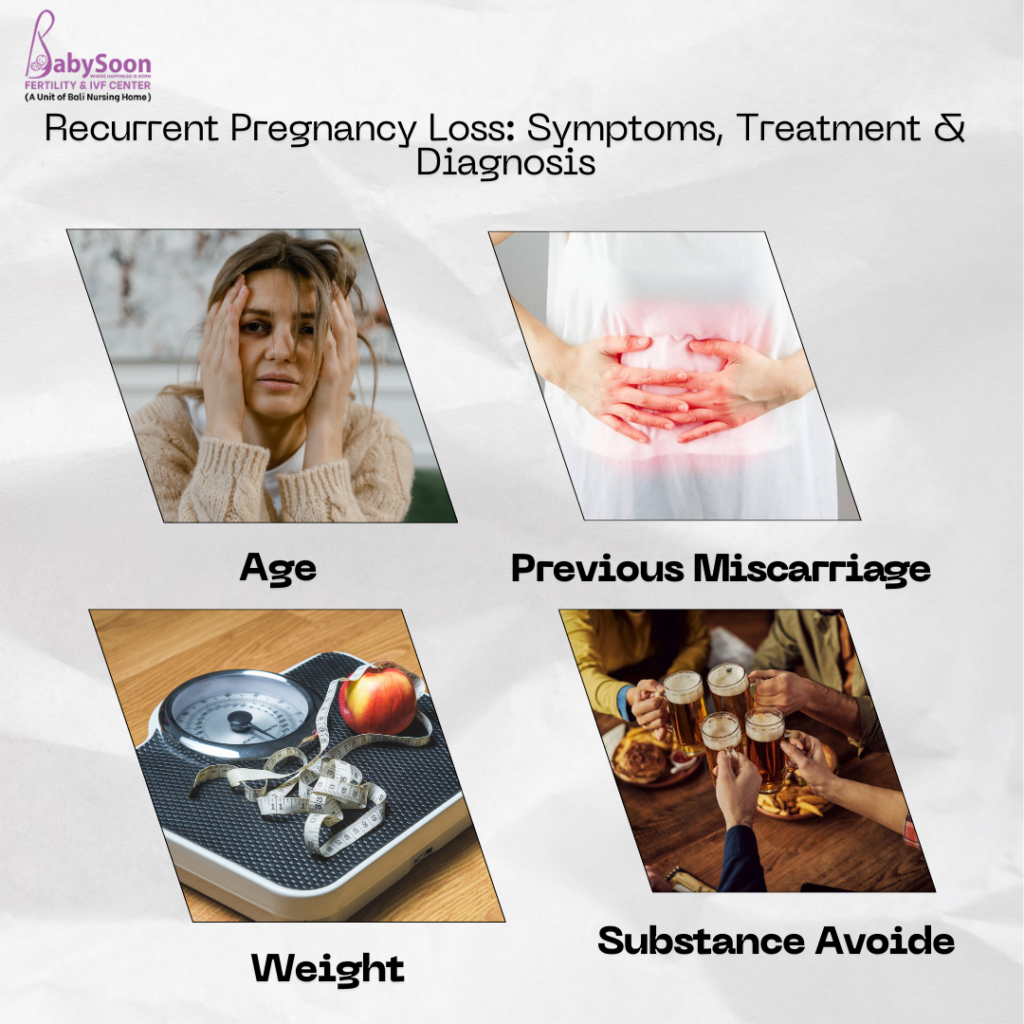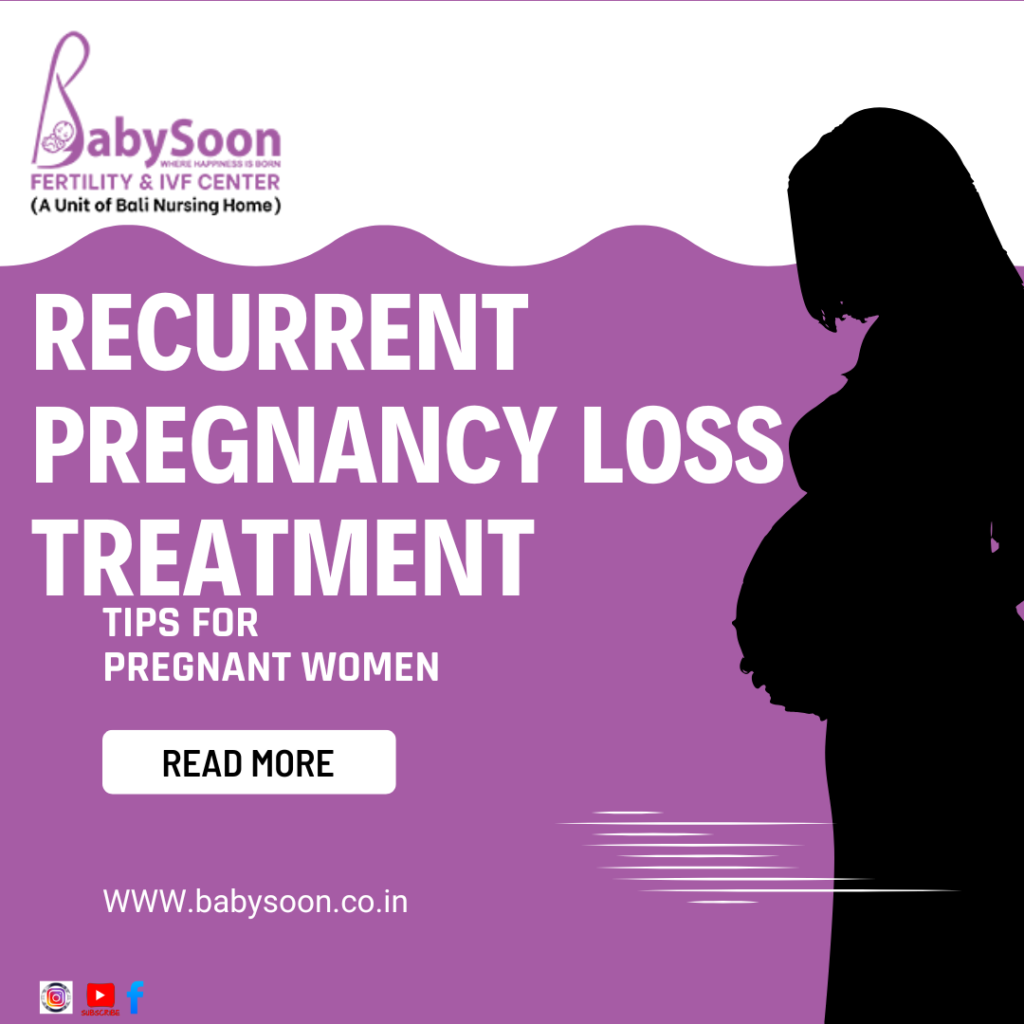
Recurrent Pregnancy Loss (RPL) refers to the occurrence of multiple miscarriages. Traditionally defined as three or more consecutive pregnancy losses, the American Society of Reproductive Medicine (ASRM) now considers two or more losses as recurrent. A pregnancy loss is characterized as a clinically recognized pregnancy that ends involuntarily before 20 weeks of gestation. This encompasses pregnancies confirmed by the appearance of pregnancy tissue after a miscarriage or those diagnosed through an ultrasound.
A very distressing condition, RPL is an illness affecting approximately 1% of couples trying to conceive. Some causes include hormonal imbalances, structural abnormalities of the uterus, genetic defects, and underlying medical conditions. RPL can have a serious emotional impact on couples, who often feel helpless and in need of psychological as well as medical support. Early diagnosis and focused treatment improve the outcome and increase the possibility of a healthy pregnancy.
What Causes Recurrent Pregnancy Loss?
Chromosomal Abnormalities
The most common causes of miscarriage are random genetic anomalies in the egg, sperm, or embryo. These anomalies can cause chromosomal abnormalities that make the pregnancy incompatible with continued survival.
Statistics:
- 12–15% of clinically recognized pregnancies result in miscarriage.
- Up to 30–60% of conceptions end within the first 12 weeks, often before the woman is aware of the pregnancy.
- The risk of miscarriage increases with previous pregnancy losses and maternal age due to reduced egg quality.
Uterine Abnormalities
Irregularities in the uterus can contribute to miscarriage, either due to poor blood supply or inflammation. Some women might be born with a misshapen uterus. Other conditions like fibroids, scarring, or polyps develop with age.
Immune and Hormonal Causes
Some pregnancies can be affected by improper immune reactions or hormonal imbalance conditions such as thyroid problems, diabetes, or even high prolactin.
Pregnancy complications might be related to antiphospholipid syndrome or disorders that prevent the blood from clotting.
Other causes
While environmental, occupational, and stress factors are not strongly associated with RPL, lifestyle and overall health may affect pregnancy outcomes.
Diagnostic Tests for Recurrent Pregnancy Loss
A comprehensive assessment is required to diagnose the cause of RPL. The following tests and evaluations can be performed:
Genetic Testing:
Karyotype Analysis: Both partners can be tested for genetic abnormalities that might be transmitted to the embryo.
Uterine Evaluation:
Ultrasound: Identifies the shape of the uterus and the presence of fibroids or other abnormalities.
Saline ultrasound:
Abnormalities such as polyps and scarring are highlighted by injecting fluids into the uterus.
Using X-ray imaging, a hysterosalpingogram (HSG) assesses the uterus and fallopian tubes.
A hysteroscopy is a small surgical technique used to address uterine abnormalities like fibroids or polyps by using direct viewing.
MRI:
Used in complex cases to analyze uterine structure in detail.
Immune and Blood Clotting Tests
Antiphospholipid Antibodies: These tests detect antiphospholipid syndrome, which is linked with recurrent miscarriages.
Blood Clotting Disorders: If there is a family or personal history of clotting problems, then other tests may be performed.
Hormonal and Metabolic Tests
Thyroid Function Tests: Detect thyroid dysfunction or antibodies.
Prolactin Levels: Evaluated for inappropriate breast milk production.
Ovarian Reserve Tests: Assess the quality and function of the eggs.
Diabetes Screening: If the patient is at risk for diabetes, then this is performed.

Treatment for RPL
The treatment for RPL is guided by the underlying cause:
Chromosomal Abnormalities: Couples diagnosed with chromosomal abnormalities are usually recommended to seek genetic counseling to discuss their risks and alternatives.
Advanced Choices:
Preimplantation Genetic Testing (PGT): Done during IVF, it evaluates embryos for chromosomal abnormalities prior to implantation.
Prenatal Testing: Techniques such as CVS or amniocentesis may be performed during pregnancy to assess the baby’s genetic health.
Abnormalities in the Uterus
Uterine defects, such as fibroids, polyps, or uterine septum, can be corrected surgically.
Antiphospholipid Syndrome: Medications that reduce blood clot formation, such as aspirin or heparin, are used.
Hormonal and Metabolic Disorders
Treatment for thyroid dysfunction, diabetes, or abnormal prolactin levels improves pregnancy outcomes.
Unexplained Recurrent Pregnancy Loss
In over 50% of cases, no specific cause for RPL can be identified despite extensive testing. While there is no universal treatment for unexplained RPL, the chances of a successful future pregnancy remain high—more than 50% without intervention and up to 77% with medical support.
At Baby Soon Fertility & IVF, we provide personalized care and the latest treatments to help couples achieve their dream of parenthood. With experience in diagnosing and treating RPL, our team is committed to guiding you through every step.
FAQs:
Q1: What is recurrent pregnancy loss (RPL)?
Recurrent pregnancy loss is defined as having two or more consecutive miscarriages before the 20th week of pregnancy.
Q2: What causes recurrent pregnancy loss?
Common causes include:
Genetic abnormalities in the embryo
Uterine abnormalities (such as a septate uterus, fibroids)
Hormonal imbalances (such as thyroid disorders or PCOS)
Blood clotting disorders (such as antiphospholipid syndrome)
Infections or immune system problems
Q3: What are the treatments for recurrent miscarriages?
Treatment depends on the cause and may involve any of the following:
Hormonal therapy to support pregnancy (for example, progesterone supplementation)
Surgical correction for uterine abnormalities
Blood-thinning medications for clotting disorders
Genetic counseling and newer reproductive technology like preimplantation genetic testing (PGT)
Improvement of life habits (quit smoking, proper weight management, etc.)
Q4: Does psychological stress cause habitual pregnancy loss?
Though stress itself is not the direct causative agent, too much chronic stress would influence health in general and fertility. Reducing stress may also enhance the prospect of having a normal pregnancy.
Q5: What are the possibilities of a successful pregnancy after RPL?
Women who receive the right diagnosis and care can often go on to have healthy pregnancies. The success varies with the cause and personal condition.
Q6: Will lifestyle changes improve the chances for recurrent pregnancy loss?
Yes. Lifestyle changes will include maintaining optimal weight, avoiding alcohol and smoking, and managing conditions such as diabetes or hypertension to reduce the chances of recurrent loss.
Q7: How long after a miscarriage can I try to get pregnant again?
Most healthcare providers recommend waiting until you have had at least one normal menstrual cycle to allow your body to heal. Consult your doctor for personalized advice.
Q8: When should I see a specialist for recurrent pregnancy loss?
If you have had two or more consecutive miscarriages, it is important to see a fertility specialist or reproductive endocrinologist for evaluation and guidance.

